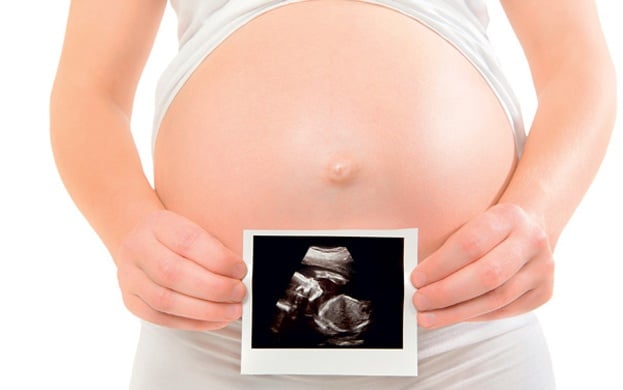
1. Bathing after sex washes sperm away
Partially true. In some women, water can enter the vagina during a bath. This may have an effect on the concentration and survival of sperm. This truth is timing dependent – if you have a bath straight after sex, water can enter and wash most sperm away. However, some may already have made their way up the cervix in case a bath won't help. And if you have a bath several hours later, it would be too late.
2. You can't get pregnant if you urinate right after sex
This is completely untrue.
Read: Parents, this is how to keep the sex fires burning
3. Orgasms allow women to release eggs
Partially true. Orgasms may be associated with increased pelvic congestion, but there has to be a mature egg which is ready to be released for orgasm to have any effect at all, so an orgasm on its own isn’t responsible for the release of eggs.
4. You cannot get pregnant during menstruation
This might actually be true. Each menstrual cycle is a sign that the egg from the previous cycle was not fertilised. As a result, there has been a hormone change which has caused the lining of the womb to shed. The lining will be rebuilt in preparation for the release of an egg in the following cycle.
However, if your cycles are very short or irregular and your menstruation period long, there could be a chance that you could ovulate during menstruation. Speak to your doctor.
5. Sperm can only live up to 3 days
False: In a healthy environment, sperm can live up to 3, even 4 days.
6. Infertility is a female problem
This is untrue. Statistics show that approximately 40% of infertility can be attributed to male issues.
7. Stress causes infertility
Partially true. Infertility is caused by problems with the reproductive system and stress can aggravate the factors associated with infertility, but it’s not the sole cause.
8. Loose boxer shorts may help a man's fertility
True. Yes, temperature does play an important role. The temperature of the testes in general is 1.5 – 2 degrees lower than body temperature. Sperm production occurs at a lower temperature. Tight underwear holds testicles close to the body and increases testicle temperature which may affect sperm production.
Wearing loose-fitting underwear allows the testes to hang away from the body and thus maintain a lower temperature.
9. If you've had a baby, you will not suffer from infertility
Not true. Secondary infertility affects millions of couples (over one million in the US alone). Remember that a previously fertile partner may be with a new spouse or could have recently developed fertility problems (e.g. endometriosis is very frequent).
Men could also experience a marked decline in sperm motility or sperm concentration, and as a woman gets older, her fertility could also decline.
10. Certain positions are best for conceiving
False. Position makes no difference. The key point is that sperm have to reach cervical mucous within a few minutes or they are made redundant by the active pH of the vagina. So, whether you’re swinging from the ceiling or crouched on the floor, makes no difference.
11. Very skinny women are able to get pregnant more easily
False. Your body mass index (a measure of your body fat) can affect your ability to conceive. Body fat levels that are 10 to 15% below normal can stop your reproductive system from working completely. Similarly, if you’re overweight to obese, you may also find it more difficult to conceive.
Calculate your BMI like this:
- Multiply your height (metres) by itself (eg 1.6m x 1.6 = 2.56).
- Divide your weight (kg) by your height squared (eg 58kg / 2.56 = 22.6).
- The result is your BMI. A healthy BMI falls between 18.5 and 24.9.
12. Just relax and you will get pregnant easily
Partially true. Who hasn’t heard the well-meaning advice, “Relax and you’ll get pregnant,” or, “Go on holiday and you’ll make a baby!” If only this were a miracle cure. Realistically, relaxing on a beach isn’t going to magically conjure up a baby if the reproductive system is at fault. So advising infertile couples to “just relax” can be very insensitive.
But the advice is well-meaning and has some merit. When you let go of the pressure that you must have a baby, you might find yourself enjoying sex more often; and thus lessening the stress that contributes to infertility. Stress hormones can also interfere with your reproductive hormones. So it's worth taking a break every now and then.
13. A 35-year-old woman can get pregnant as easily as a 25-year-old
False. Women are having children later in life. This could be due to progress in their careers, or simply marrying later, but there could be a downside to this.
According to the American Society for Reproductive Medicine, it is estimated that two-thirds of women will not be able to get pregnant spontaneously by the age of 40. Their information shows that about one-third of couples in which the female partner is age 35 or older will have problems with fertility.
Fertility experts say that a woman’s fertility peaks at age 20 and declines thereafter, dropping most rapidly after age 38.
14. A good diet promotes fertility
True. Yes, they taste great but chocolates, sweets, cakes and bread expand your waistline; and can also contribute to infertility. Harmful diets, whether by overeating and binging on unhealthy, fatty food, or starving, can disrupt the balance of reproductive hormones that are vital for successful conception.
You don’t have to cut out all snacks completely, but do try to follow a diet that is rich in fruit, veggies and good nutrients. Research has shown that low Vitamin C levels may cause sperm to clump together, rendering almost 16% of all men infertile.
15. Infertility treatments usually result in multiple births
Partially true. The risk of multiple births varies according to the treatment option, and there isn’t much to indicate if this is fact or fiction. It isn’t unusual for one of the side effects of fertility treatments to result in multiple birth – twins are the most common. But it is by no means a given.
16. It all comes down to timing
True & false. Some infertility is irreversible, but if you have diet-related infertility – which most men and women do, then how long it takes to reverse the negative factors is up to you. Changing the body’s biochemical markers takes 6 to 8 weeks, cell membranes take around 6 months.




 Publications
Publications
 Partners
Partners














